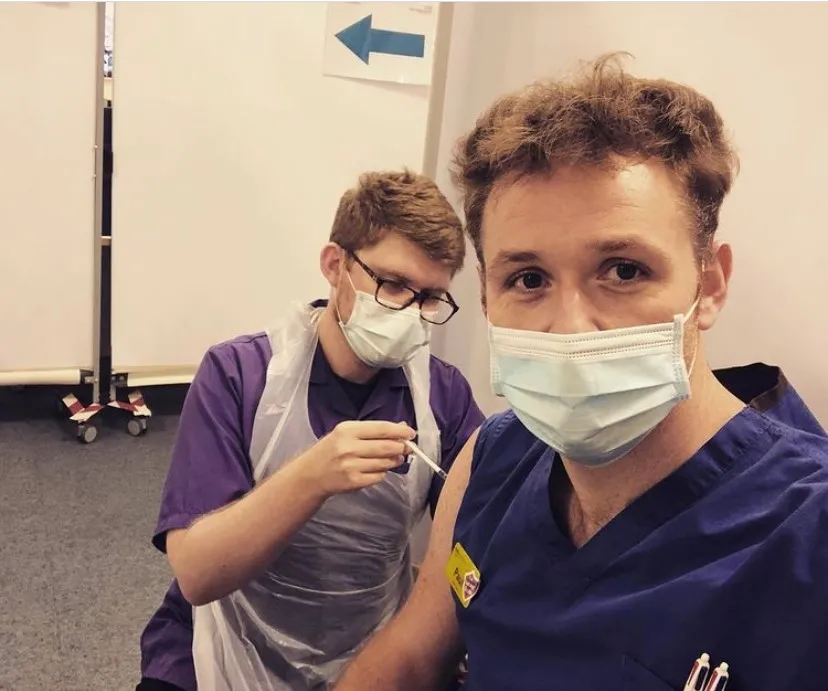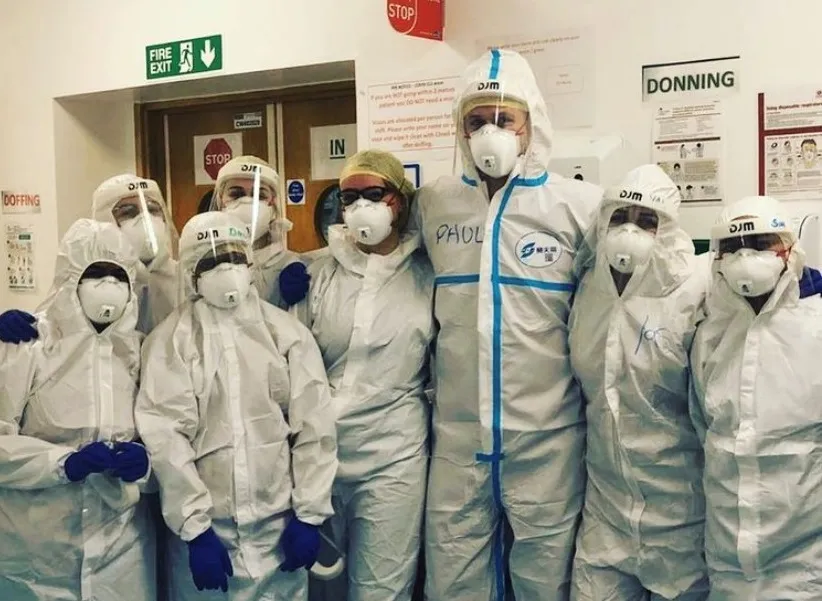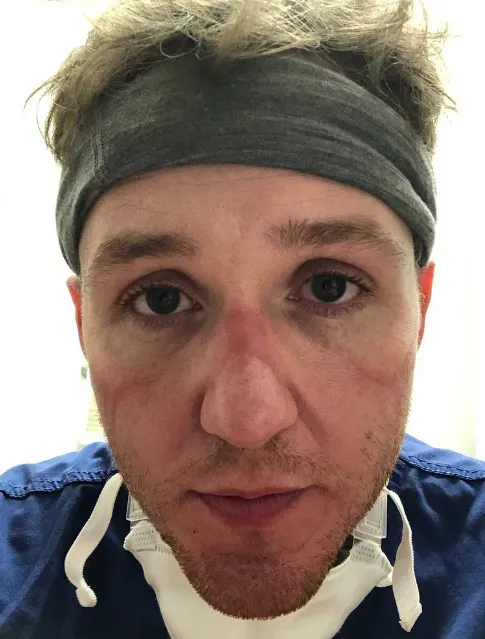
Since joining King’s eight years ago, Paul has spent the past six working in ITU caring for the most seriously ill patients, ensuring their safety and supporting the bedside nursing staff who provide round the clock one-to-one care. But COVID-19 has sent patient numbers rocketing.
“The normal ratio of nurse to patient is 1:1 in intensive care, but currently it’s 1:3 or even 1:4,” says Paul.
“We’re not able to give the same dedicated care that we would normally give and that doesn’t sit comfortably with us. But I have to keep reminding myself it’s a pandemic.
Paul’s team performs a multitude of tasks: looking after intubated patients on ventilators, making sure they get the right medications and treatments, caring for their personal needs and contacting family members with regular updates.
“Every moment we need to reprioritise, to make sure people are getting the care they need, but patients’ conditions can change rapidly,” says Paul.

Staff witnessed the grave reality of the virus early into the first wave of COVID-19 in 2020, but the latest surge has put unprecedented pressure on the team.
“During the first wave we took patients from different hospital Trusts and nurses were redeployed left, right and centre. They were turning up for shifts not knowing where they would need to be or what their day would involve, but we got through it – we did a good job,” says Paul.
“But now we’re seeing large numbers of patients with coronavirus who need intensive oxygenation and care. We’ve taken over so many areas of the hospital now. Many patients on the medical wards are on the brink of needing to be intubated and this is coupled with the sheer number of staff that are sick or shielding. We’re losing more of our staff every day – it feels like the number of nurses is depleting while the number of patients is rising. It’s worrying.”
Paul and his colleagues have been deeply touched by the generosity of supporters who helped patients and staff at the start of the pandemic through the Hospital Heroes Appeal. They now hope people will help them once more through our S.O.S. Appeal.
“We’re exhausted. We’re working 13 to 15 hours a day in layers of PPE and it’s so hot and sweaty beneath the gowns. It’s easy to get dehydrated and the masks can cause pressure sores."

“PPE also makes it so difficult to communicate with patients. Your facial expressions tell a lot and every bit of nuance, the looks that show people that you care, are hidden. Some people have told us we look like robots coming towards them. As a nurse, you want to be able to touch your patients to show empathy, but often you’re touching them through two or three layers of gloves.
“This time round I’m more emotionally drained because I feel so sad for our patients and for my team. As a nurse leader you see it; you see the impact it's having on colleagues.
“We need help to make sure family support services are there for those whose loved ones are dying, so they can see them and talk to them, via electronic tablet, before they die.
“We need help to follow up with those who survive and return home too, because post-traumatic stress is already an issue with those patients. And it’s an issue for staff too.
“Nursing is our job – it’s what we nurses do and we don’t expect special treatment. But, right now, we need help, and support from the local community means so much to us because it shows us that people are out there, thinking of us.”